Putney Swope (1969)
“There are no losers — every product has potential!”
|
Synopsis: |
|
Genres, Themes, Actors, and Directors:
Response to Peary’s Review: … getting “scores of rich white clients because his obscene commercials prove extremely effective” — “no matter that he steals the ideas for the ads.” Peary points out that Swope “is as money-hungry and unscrupulous as his white predecessors (although he refuses to run ads that promote war toys, alcohol or cigarettes)” — and, in a telling early scene, he “rips down a poster of Sidney Poitier,” revealing that “Downey has no intention of populating his picture with blacks whom the white male audience will feel comfortable watching.” “Indeed,” Peary says, “Downey’s film was designed both to satirize those black militant prototypes he regarded as politically insincere and to present the bigoted white viewer’s nightmare vision of what would happen if black militants came into power.” Peary asserts that the picture is “dated (the once hilarious color commercials now seem trite)”: … it “hasn’t two funny lines in a row,” and it “has an end that foolishly undermines Swope’s character.” However, he notes that “while it’s overrated, it’s certainly unique, if only because it attacks most everyone, even midgets.” I agree the film isn’t funny, and that it’s quite “dated” — but in precisely the way it should be, given it was intended as a disruptive cinematic experiment which Downey himself noted he didn’t necessarily think people should try to make sense of. It’s primarily of interest these days for its historical relevance within late-1960s underground cinema. Check out the DVD extras, and/or Criterion’s essay, for more on the experimental work that preceded this most enduring facet of Downey’s output. Notable Performances, Qualities, and Moments: Must See? Categories
Links: |
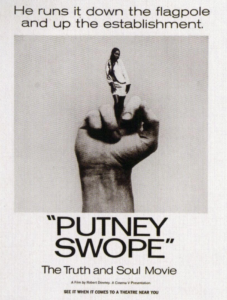


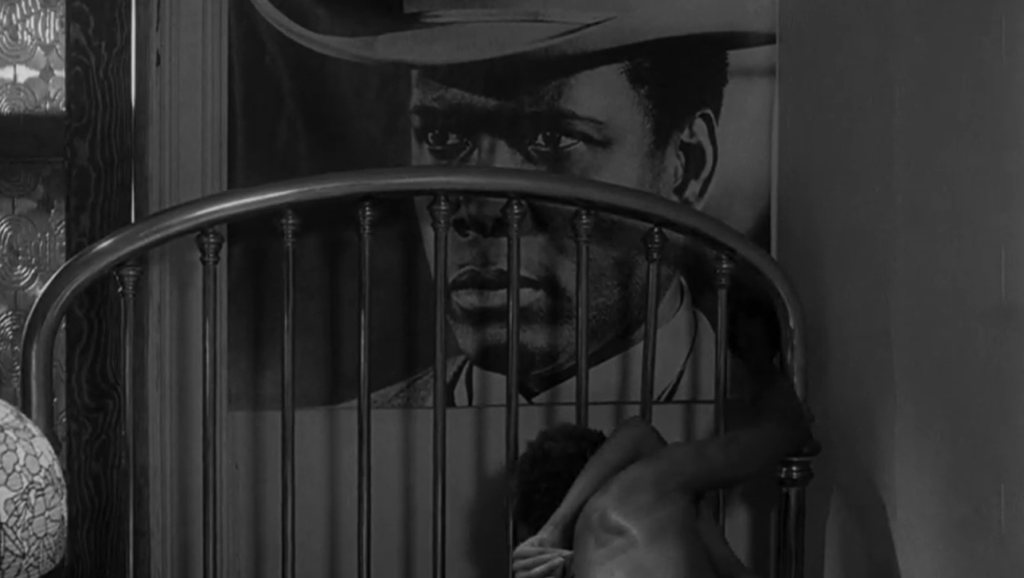
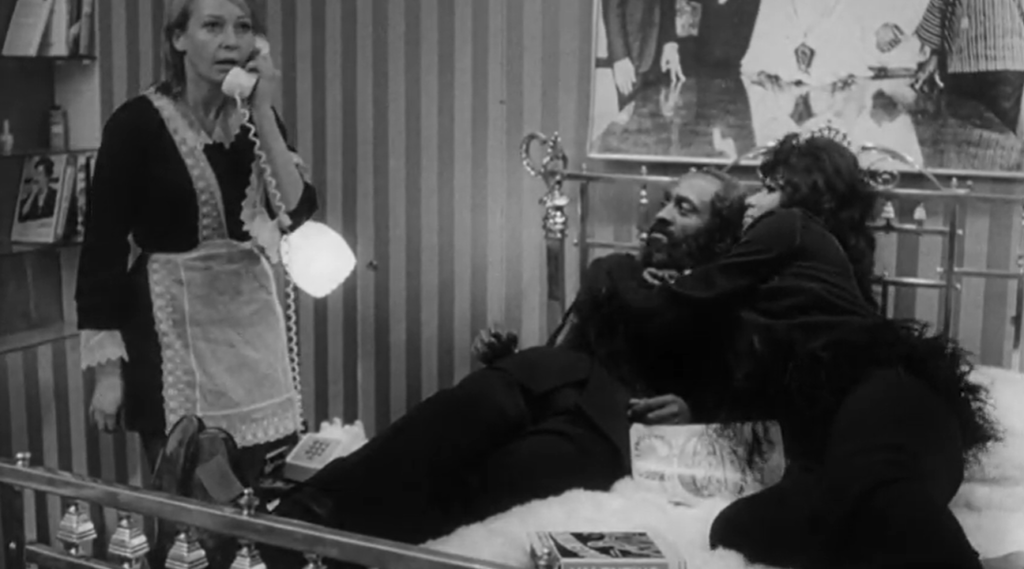


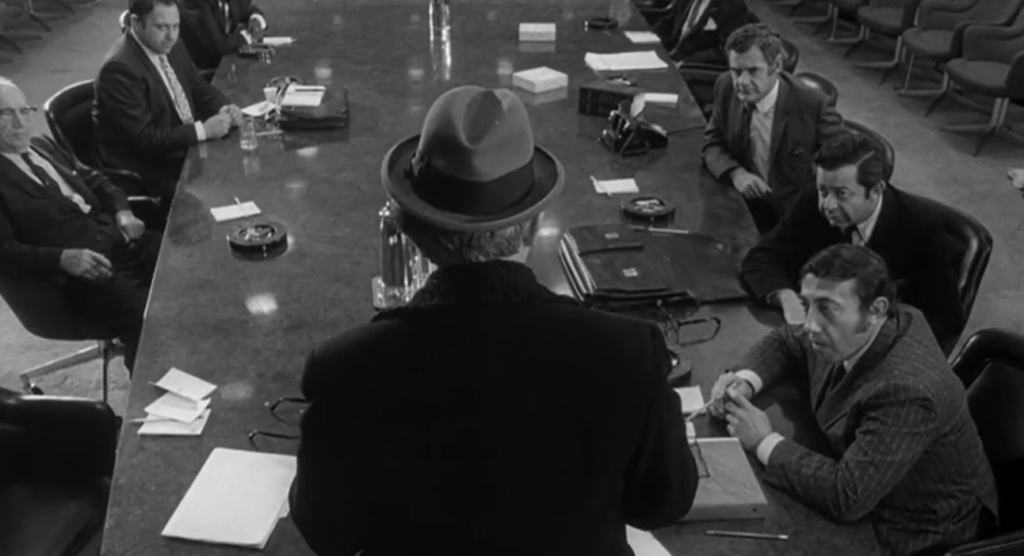
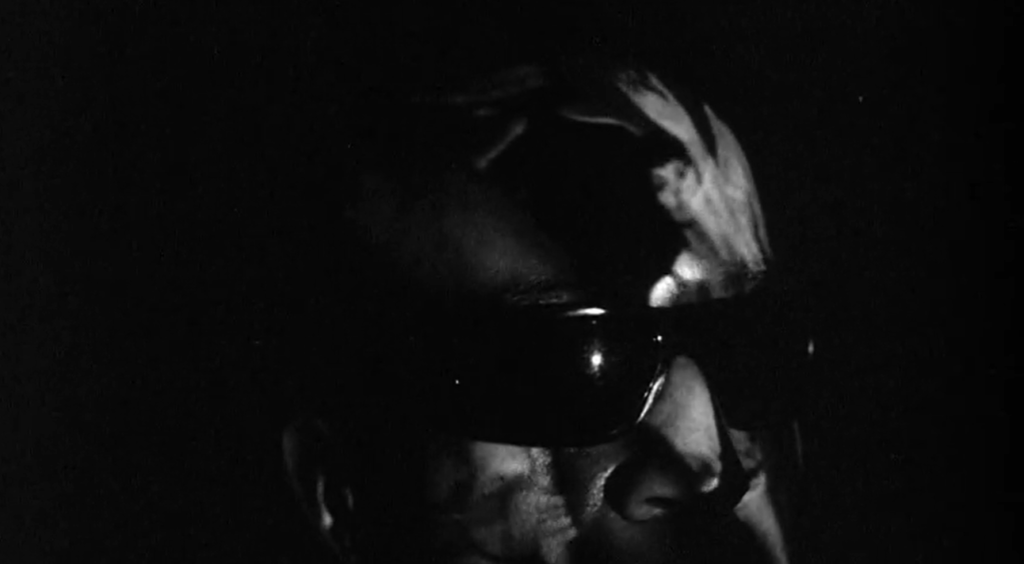
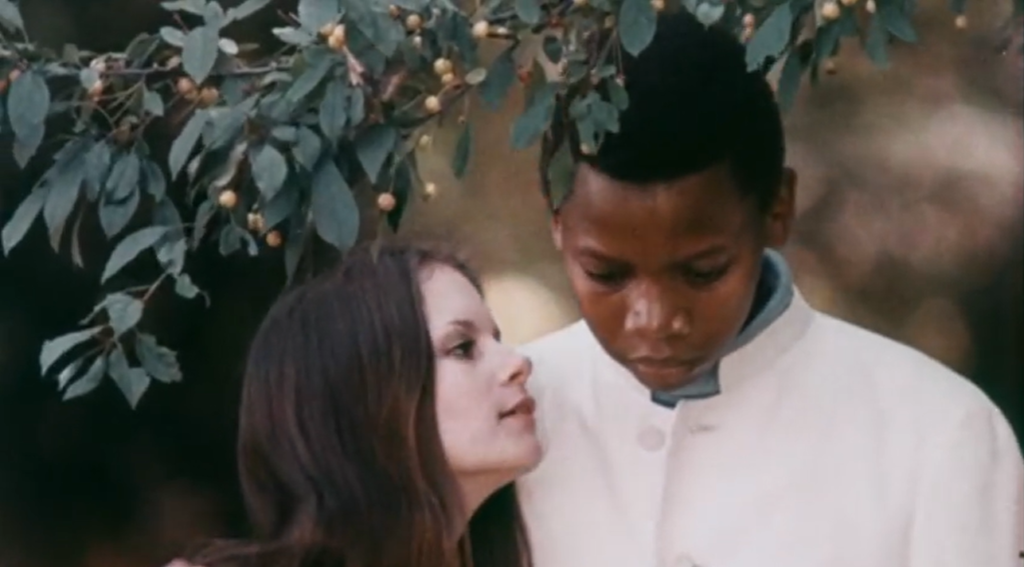
One thought on “Putney Swope (1969)”
Rewatch 3/4/20. Agreed; should be seen once for its… curious… cult status. As posted in ‘Revival House of Camp & Cult’ (fb):
“We all voted for him – because we thought no one else would vote for him.”
‘Putney Swope’: I hadn’t seen this in decades – my best guess would be that I saw it at the Bleecker Street Cinema in NYC (that revival palace!). It’s sort of astonishing how well it has held up. …The prez of an all-white-guy-but-one ad agency has a heart attack in front of his executive board – and they vote someone else in on the spot: surprisingly, the black man… who decides to fire the board and take over the business with his own vision. As a result, what we get is a film that’s something of a mixed bag – but consistently intriguing (and often visually arresting) throughout. A number of the jokes work quite well, some of them less so. (A fave bit for me is when the sole white guy in the new regime asks for a raise.) Nevertheless, it’s more than just a late ’60s artifact; it still resonates – and it’s welcome anarchy that often surprises.